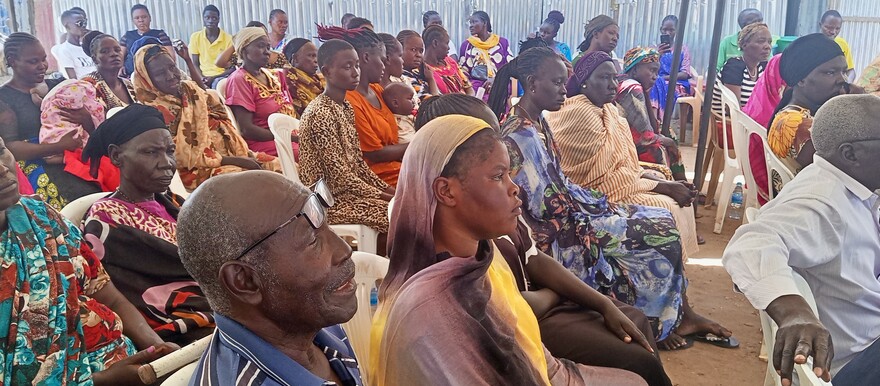Residents of the Mauna area in Juba, South Sudan, have said that a significant number of gender-based violence cases go unreported due to cultural stigma and concerns about confidentiality.
This revelation emerged during a community awareness program organized by the South Sudan Law Society (SSLS) and Legal Action Worldwide (LAW) in Mauna, where alarming instances of rape and child marriages were discussed. The project, funded by the European Union (EU), drew the participation of over 100 residents.
Oliver Taban of SSLS emphasized that the community awareness session aimed to inform the public about the work of the Justice Confidence Centre (JCC). “These awareness sessions help communities understand the fundamental concepts of gender-based violence and the services available from providers,” he explained.
Taban underscored the urgent need to develop and strengthen legal aid services that specialize in addressing cases related to gender-based violence in the country.
“There is a pressing need to enhance women’s awareness of their rights and create opportunities for them to assert, access, and enforce these rights,” he emphasized.
The Mauna area chief, Bidal Fraizer, explained that the low rate of reporting gender-based violence cases can be attributed to gender bias and a culture of impunity. He stated on Saturday, “Poverty also leads to more gender-based violence, including child marriage, often for bride price, sexual exploitation and abuse, or limited access to sexual and reproductive health rights.”
Despite the importance of reporting gender-based violence, Bidal acknowledged the conservative nature of South Sudanese society, where women often refrain from reporting incidents of rape or gender-based violence.
Jennifer Elimani, a facilitator, underscored the deep-rooted nature of gender-based violence in gender inequality, harmful social and gender norms, and a highly patriarchal community and legal system. She explained, “GBV is fuelled by discriminatory social norms and power imbalances between men and women, exacerbated by a highly patriarchal legal system and the application of customary laws that sometimes tolerate GBV.”
Elimani called for comprehensive training for influential figures in communities and increased awareness campaigns about GBV and its consequences.
Mary John, a resident of the Mauna area, emphasized the importance of establishing and supporting customary courts to address and refer cases related to gender-based violence.
According to a study conducted by SSLS, up to 90% of gender-based violence (GBV) cases are adjudicated in customary courts where older male judges, often holding deeply ingrained patriarchal views, preside. These courts generally condone domestic violence.
The study revealed, “This discourages women from seeking justice but it also leads to women accusing their husbands of excessive abuse to being sentenced and sometimes being punished more harshly than their husbands.”
South Sudan holds the second-highest prevalence of GBV in the region, as indicated by a 2018 study. The study reported significant proportions of women (aged 15-64) experiencing gender-based violence, with 34% facing physical violence and 13.5% enduring sexual violence at some point in their lives.




